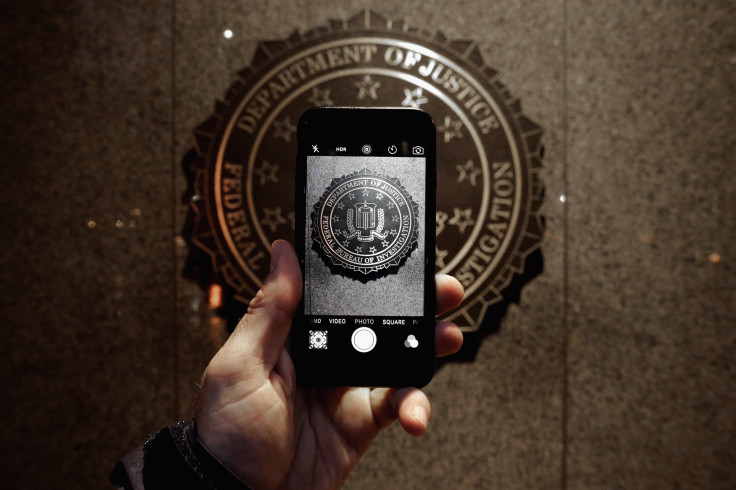DOJ Accuses Apple Of ‘False Rhetoric,’ Asks Court To Uphold Order To Unlock Terrorist’s iPhone

The Department of Justice has fired back at Apple and the technology industry’s defense of encryption, arguing that the company has falsely framed the court order as a threat that could “lead to a police state.”
The DOJ submitted its 35-page report in court Thursday, maintaining that it has the authority to compel Apple to unlock the iPhone used by one of the San Bernardino, California, killers, Syed Rizwan Farook, and that its request is “not unreasonable” for the manufacturer to comply with.
“Instead of complying, Apple attacked the All Writs Act as archaic, the court’s order as leading to a ‘police state,’ and the FBI’s investigation as shoddy, while extolling itself as the primary guardian of Americans’ privacy,” DOJ lawyers wrote. “Apple’s rhetoric is not only false, but also corrosive of the very institutions that are best able to safeguard our liberty and our rights: the courts, the Fourth Amendment, longstanding precedent and venerable laws, and the democratically elected branches of government.”
The filing is the latest in a legal battle between the U.S. government and Apple, which reached the public spotlight on Feb. 16, after Apple CEO Tim Cook publicly opposed the initial court order granting the FBI's request to compel Apple to unlock Farook's iPhone 5c. “Opposing this order is not something we take lightly,” Cook wrote in the public letter. “We feel we must speak up in the face of what we see as an overreach by the U.S. government.”
Since then, several tech giants, including Google, Facebook, Amazon and Microsoft, have come out in support of Apple’s defense through amicus briefs filed to the court. Meanwhile, law enforcement groups such as the California State Sheriffs association, California Police Chiefs Association and California Peace Officers Association have come out in support of the FBI order.
The FBI initially maintained that the case was narrowly focused on one iPhone and not intended to be a sort of skeleton key into all iPhones. But at a March 1 congressional hearing, FBI Director James Comey admitted that law enforcement agencies would use the precedent set by the order to get into iPhones in other investigations. Apple argues that down the road, it could potentially have to expose its smartphone to even more invasive law enforcement requests.
“Someday they will want us to turn on [a user’s] camera or microphone,” Apple VP of internet software and services Eddy Cue told Univision. “We can’t do that now, but what if we’re forced to do that? Where will this stop? In a divorce case? In an immigration case? In a tax case? Some day, someone will be able to turn on a phone’s microphone.”
Apple has until no later than Tuesday to submit its counter-response to the court. The DOJ and Apple will then make oral arguments in court in Riverside, California, on March 22. U.S. Magistrate Judge Sheri Pym is expected to make a decision on the original order after hearing arguments. Whatever the results, the losing party is expected to appeal the ruling to a higher court.
As the Justice Department and Apple duke it out in California, the same parties are fighting a similar battle on the East Coast. On Monday, the FBI mounted its own appeal in a New York case where a federal court declined to issue an order under the All Writs Act. Such an order would have compelled Apple to build a backdoor into an iPhone associated with Jun Feng, who was convicted of drug trafficking in 2015. While the initial verdict in the New York case could potentially impact the court's decision in Apple’s California appeal, Pym is under no obligation to follow through with a similar ruling.
Read the full response below:
Justice Department Reply To Apple In San Bernardino iPhone Unlocking Case
© Copyright IBTimes 2024. All rights reserved.






















